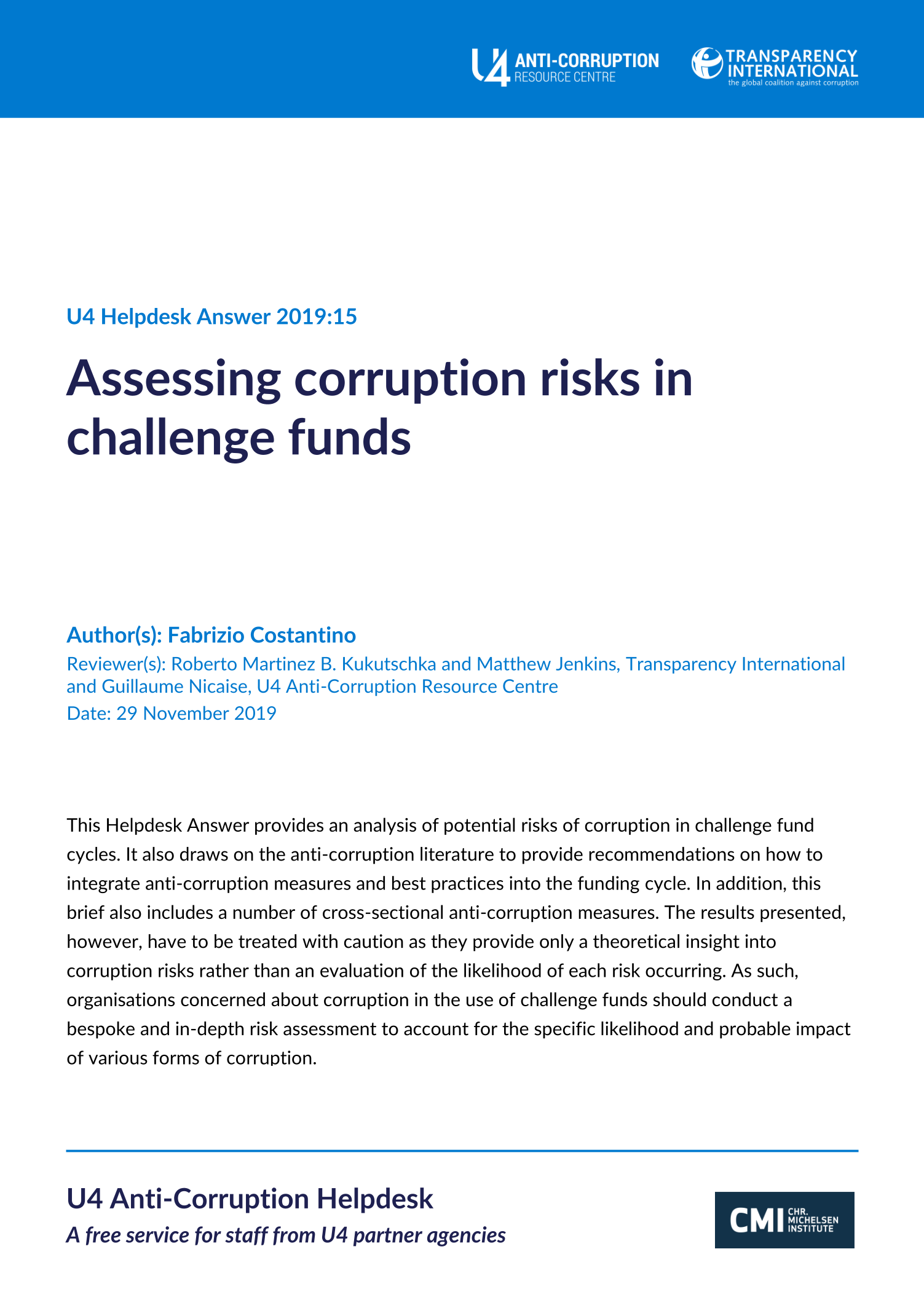Main points
- Challenge Funds may entail high risks of corruption as they operate in specialised fields, have complex project structures with flexible results frameworks and can involve profit-driven actors.
- Given their role as intermediaries between donors and grant holders, fund managers play a critical role in identifying and curbing corrupt practices.
- The severity of different forms of corruption risk vary across the six typical phases of Challenge Fund project cycles.
- The literature presents a range of mitigation measures suited to reducing corruption risk, ranging from clarity in project design to transparency in policies and procedures, third party oversight and grievance mechanisms.


